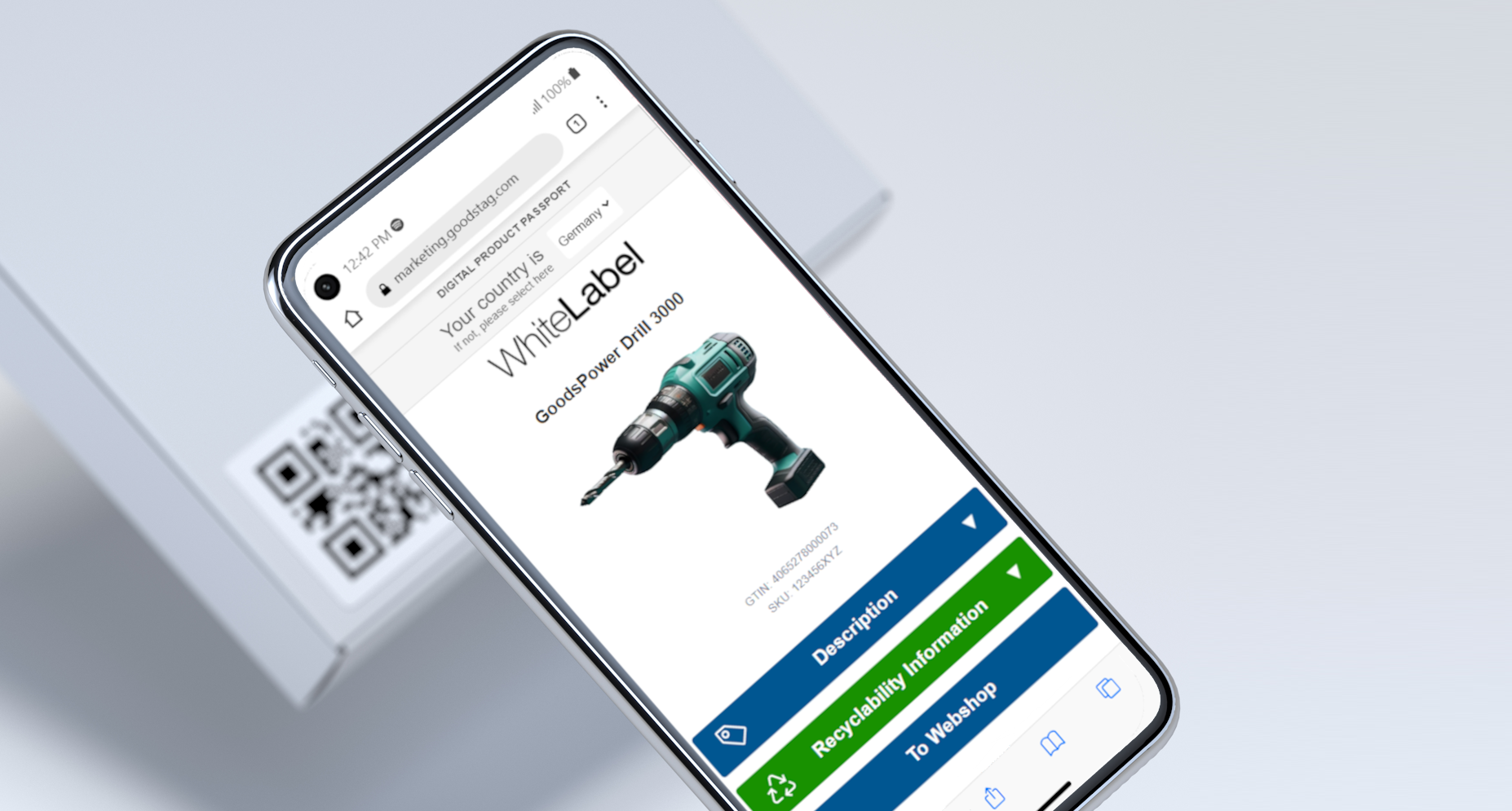On 4 December 2023, the European Commission, Parliament, and Council reached a draft agreement on the Ecodesign for Sustainable Products Regulation (ESPR) to ensure the sustainability of all consumer products sold in Europe. In future, only products that have been manufactured in a resource-saving, durable and energy-efficient manner will be allowed on the internal market. The regulation applies to almost all categories of goods.
To obtain, utilise, keep and access all the information required, there must be a solution at hand. And this is where the Digital Product Passport (DPP) enters the scene. The DPP, mandated by the ESPR, is a digital record that will accompany products throughout their entire life cycle, aiming to enhance transparency from manufacturing to end-of-life.It will provide a wealth of information about a product’s environmental impact, repairability, and recyclability, enabling consumers to make informed choices and businesses to optimise their operations for sustainability, facilitating the shift to a circular economy.
What is a DPP?
A DPP is a digital document that contains information about a product’s environmental impact, repairability, and recyclability. This information will be collected throughout the product’s life cycle, from design to disposal, and will be stored in a secure and accessible digital format. Consumers will be able to access this information through QR codes or other digital means, allowing them to make informed purchasing decisions. Businesses will also use the DPP to improve their products and processes, reducing their environmental impact and enhancing their reputation for sustainability.
How will the DPP work?
The DPP will be implemented in a phased approach, starting with certain product categories, such as batteries, smartphones, televisions, and washing machines. The EU Commission will gradually expand the scope of the DPP to cover a wider range of products over time to ensure on a longer run the sustainability of all consumer products sold in Europe.
What are the benefits of the DPP?
The DPP has the potential to revolutionise the way we design, manufacture, and consume products. It will:
- Reduce environmental impact: By providing information about a product’s environmental impact, the DPP will encourage consumers to buy more sustainable products. This will incentivize businesses to design and manufacture products with lower environmental footprints.
- Improve repairability: The DPP will include information about a product’s repairability, making it easier for consumers to find repair services. This will reduce the amount of waste going to landfills and incinerators.
- Increase recyclability: The DPP will include information about a product’s recyclability, making it easier for consumers to recycle them responsibly. This will help to reduce the amount of waste going to landfills and incinerators.
- Drive innovation: The DPP will create a market for more sustainable products, which will drive innovation in product design and manufacturing. This will lead to the development of new technologies and materials that are more environmentally friendly.
What are the challenges of the DPP?
The DPP is a complex initiative that will require collaboration between businesses, governments, and consumers. Some challenges that need to be addressed include:
- Data collection: Accurate and consistent data about products’ environmental impact, repairability, and recyclability must be collected and this at the right product level (batch, item).
- Data quality: The data must be accurate and transparent, and there must be mechanisms in place to ensure that it is not manipulated.
- Standardisation: There must be a standardised format for storing and sharing DPP data.
- Uptake: Businesses and consumers must be willing to adopt the DPP and use it effectively.
Conclusion
The Digital Product Passport is a groundbreaking initiative that has the potential to transform the way we design, manufacture, and consume products. By providing consumers with information about a product’s environmental impact, repairability, and recyclability, the DPP will encourage more sustainable choices and drive innovation in the product life cycle. While there are challenges to be addressed, the DPP is a crucial step towards a more sustainable future.
GoodsTag Smart Products Platform aligns seamlessly with the ongoing Green Deal regulatory requirements providing the essential tools for manufacturers, retailers and their partners and contractors to integrate DPP into their products and processes. Our platform’s capabilities in serialisation, digital twin management, API-first approach and robust data synchronisation position us uniquely to support any industry on their DPP adoption & implementation paving the way towards their product transparency and circularity.
Sources:
https://ec.europa.eu/newsroom/growth/items/769584
https://www.heise.de/news/Oekodesign-EU-Staaten-beschliessen-digitalen-Produktpass-und-Reparaturindex-9582322.html
https://commission.europa.eu/energy-climate-change-environment/standards-tools-and-labels/products-labelling-rules-and-requirements/sustainable-products/ecodesign-sustainable-products-regulation_en
https://www.the-future-of-commerce.com/2023/07/25/digital-product-passport-eu/
https://www.pv-magazine.com/2023/12/05/eu-governing-bodies-provisionally-approve-digital-product-passport/

